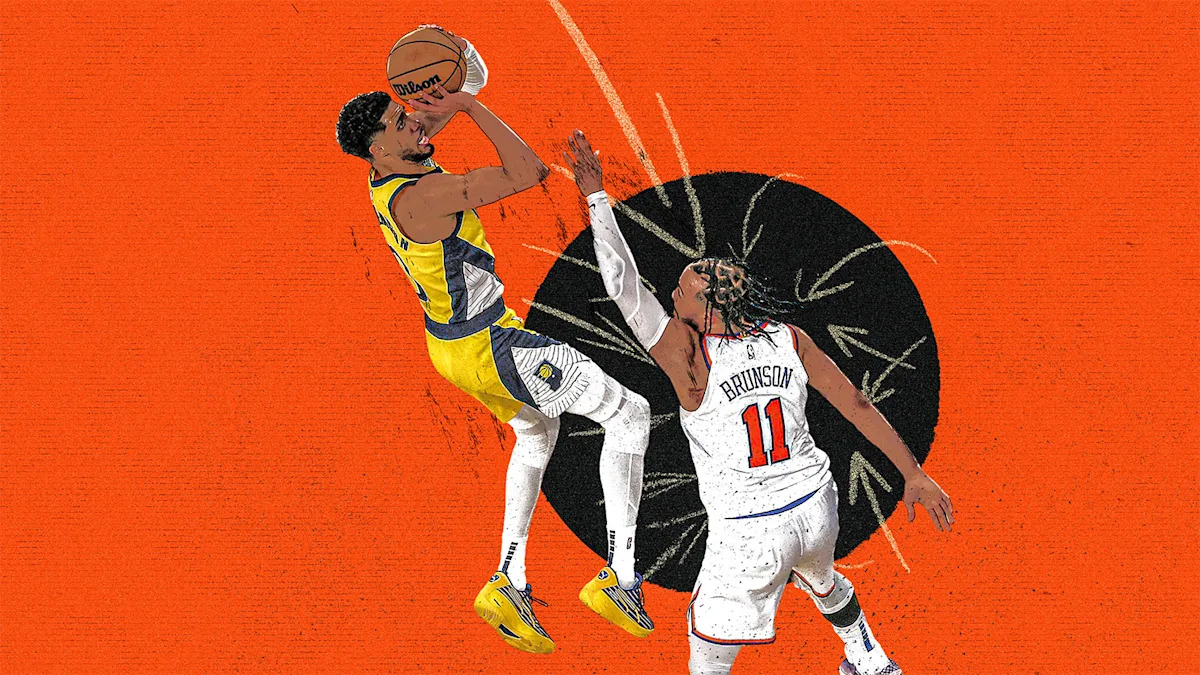
The Knicks vs. Pacers: Jalen Brunson’s Challenge on the Eastern Conference Finals
As the tension builds in the Eastern Conference Finals, the spotlight shines brightly on New York Knicks’ point guard Jalen Brunson. Following a heart-wrenching 106-100 loss to the Indiana Pacers, questions loom about whether Brunson can hold his ground as Indiana aggressively targets him on the court.
Rick Carlisle, head coach of the Indiana Pacers, reflects broadly on his team’s offensive struggles in the second half. During his media availability after the game, he emphasized the effectiveness of the Knicks’ defenders and tactfully avoided mentioning the team’s defensive liabilities. But Brunson acknowledged the challenge he faces when opponents target him. “When teams hunt me… it is what it is,” he candidly stated. The challenge is not just physical; it’s also strategic, requiring not just effort but smart gameplay to reduce fouls while effectively contesting shots.
Despite Brunson’s determination, the execution on defense has been lacking. The Pacers’ offense, spearheaded by the dynamic duo of Tyrese Haliburton and Pascal Siakam, has exploited weaknesses in the Knicks’ defense, leading to a 3-1 series advantage for Indiana. Heading into Game 5 at Madison Square Garden, the Knicks are on the brink, needing a win to stay alive in the playoffs.
Tom Thibodeau, the Knicks head coach, acknowledged the team’s collective responsibility in defending against star players like Haliburton. Yet, he noted that effective guarding requires teamwork and cohesion. Numerous factors contribute to the Knicks’ defensive shortcomings, particularly in successfully guarding Haliburton, who has been in stellar form, averaging 24.3 points and 11 assists in the finals.
Certainly, Mikal Bridges, one of New York’s premier defenders, has struggled to contain Haliburton, revealing a larger narrative of mismatched defensive strategies. The versatility of Siakam has compounded issues, contributing to breakdowns that have resulted in exploitative plays against every Knicks defender assigned to him. Other players like Josh Hart have also faced challenges, frequently finding themselves at a disadvantage against Indiana’s rapid offensive style.
The Knicks’ test in this series has made it painfully clear that the balance of offense and defense is crucial. Following a matchup against Boston, Brunson showed moments of brilliance, holding his own against formidable players such as Jayson Tatum and Jaylen Brown. However, against the Pacers, his defensive game has faltered under pressure.
The statistics paint a stark picture: during the regular season, the Knicks yielded 8.1 more points per 100 possessions with Brunson on the floor, and that number escalated to an alarming 19.8 in the postseason. Against Indiana, the situation worsened, with a staggering 30.7 points-per-100 with Brunson on the court. The Pacers have scored freely from Brunson’s one-on-one matchups, underscoring a key weakness in the Knicks’ defensive setup.
What’s concerning for Knicks fans is the apparent fallout of Brunson’s presence on the defensive end. According to recent metrics, he ranks among the league’s lowest defenders, leading to significant challenges in a playoff environment where every possession counts. The Pacers have capitalized on this weakness, using screens and quick offensive strategies to exploit Brunson, putting immense pressure on the rest of the squad to compensate.
Brunson himself has admitted, “Not good enough,” when evaluating his performance against Indiana’s pick-and-roll offensives. He outlines a need for improvement and a strategic shift to withstand Indiana’s aggressive plays. What’s evident is that while he has showcased his offensive prowess, his defensive contributions are imperative for the Knicks’ survival in this playoff series.
Amid these struggles, the Knicks are at a crossroads. Their frontline talent, which includes All-NBA players like Karl-Anthony Towns, has faced similar obstacles. Despite their skills, the duo of Brunson and Towns has not produced the anticipated synergy; the Knicks have been outscored when both players share the court. This raises critical questions about whether the current lineups and strategies can withstand the high-stakes environment of the playoffs.
Thibodeau has experimented with rotations in an attempt to mitigate defensive breakdowns, notably utilizing players like Landry Shamet and Delon Wright to provide both size and strategic communication on the court. These changes yielded results during their sole victory in the series, revealing the potential value of a flexible defensive strategy.
Looking forward to Game 5, the Knicks face a daunting challenge. Can Brunson rise to the occasion and transform his struggles into a defensive powerhouse? The upcoming game will not only determine their fate in the series but also serve as a crucible for Brunson’s growth as a player.
As the Knicks hope to stave off elimination, the efficacy of Jalen Brunson’s defensive gameplay will directly correlate with the team’s success. His journey throughout the finals illustrates the necessity of both individual growth and collective cohesion in achieving playoff success. Ultimately, when the stakes are high and the season is on the line, Brunson’s ability to adapt to Indiana’s hunting strategy will be crucial.
The narrative continues to unfold as the Knicks prepare for their fight to stay alive in the playoffs, while Brunson stands at the center, grasping the weight of expectation and the challenge posed by Indiana’s relentless offense. Every game is a test, and as the series advances, the potential for redemption looms just ahead. The question remains: Can Brunson harness his past experiences and turn the tide for the Knicks? The coming days will reveal if he can indeed stand his ground against the formidable Pacers.









